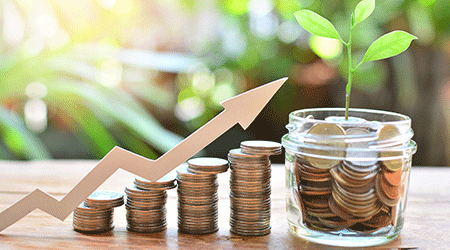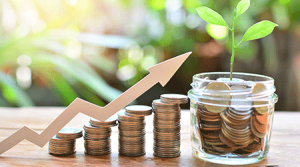Most people that open a bank account know little about the financial services out there. Often, we opt to default the savings (or other) account to what is recommended by the first bank we visit. There are no shortcuts to managing your finances, although there are a few ways you can learn how to empower the growth of your money.
No matter how much debt one has or how little income they make, they can figure out how to make finances grow through a savings account with the right financial plan. Vio Bank has made banking convenient. If building savings is your goal, then these easy tips will help you get there:
Avoid Credit Cards Where Possible
Many people are skeptical of using credit cards since it can lead to an abundant amount of debt if not used responsibly. Credit cards are a huge no-no; in essence, the credit is money you do not have. Credit is money the bank is willing to lend you based on your credit score. Money loaned by the bank is money you eventually have to pay back, at an interest of cause, merely meaning you will be paying back more than you borrowed.
Credit cards can be a useful tool, if used correctly and responsibly. The critical factor is to maximize the credit and rates benefits, without spending more. Be purposeful in your credit card spending, if you like the convenience factor of an instant card payment, do not use a credit card, instead use a debit card. That way, you are never spending money that you do not have.
Budget Wisely
Making a budget is not difficult, but it can seem daunting if your finances need a big adjustment. Nowadays, you can get a budget app to help you get on the right path, but the most important thing to remember is to make your budget realistic. A budget is merely there to help you; it enables you to allocate your funds appropriately and have control over your finances rather than letting your money control you.
When you are trying to decide what to cut from your current spending, look for things you know you can live comfortably without. The best way to reduce your expense habits is to look at your previous month’s expenses and come up with a budget for the upcoming months. Know what you are working towards with your finances.
Write your financial goals down, what you want to accomplish with your finances, eliminate detailed debts, list plans to save for an emergency fund or jot down your intent to purchase your first property. You want to use your budget to reflect your goals for your finances accurately.
Choose the Account that Meets your Needs
Whether it is for a rainy day, your wedding or your children’s education, saving money is among one of the most important financial responsibilities you may have. However, we find roughly 40% of the average savings in accounts that offer little to no capital growth.
Therefore, before you decide where to save, comparing across several financial institutions is an excellent start. This decision will assist you with the ability to choose the best saving account for you. Before you decide on the best savings account offer, there are a few crucial boxes you need to tick.
Consider your unique savings needs and requirements, such as the ease of access to your funds. In addition to this, you should also consider the frequency you want to add funds to your savings account. The interest rate you will be offered is also a crucial factor.
Pay Off Your Debt
A lot of people would like to pay down their debt or completely get rid of it altogether, but they are not sure how to do it or where to begin. There is no “best way” that works the same for everyone. But choosing a strategy and sticking to it will get you closer to paying your debt than no debt plan at all.
Always try to pay a little more than your minimum payments on your credit cards, overdraft, or line of credit. When you only make your minimum credit card payments each month, it will take forever to pay off your outstanding balance. Often people get into debt and stay in debt since they tend to spend on what they want, when they want it.
If you want something, train yourself not to buy it unless you have the money. If you can satisfy your desire with less than what you would ideally want, even temporarily, make a smart decision and use the money to pay down your debt. Prioritize paying your debt by leaving your card at home, using cash, and not buying things with credit until you have paid down your liability to the level you are working.
One of the best strategies for getting out of debt is to make small payments on all your debts except for one. The one debt that is charging you the most interest and put all your extra cash and energy on paying off that one first. Once your first and most expensive debt is paid off, please take all of that money that you were paying on it and focus it on the next most costly debt; Rinse and repeat.
Automate it (Set It and Forget It)
In today’s world, you probably already have a bank account, and an online banking app, if not, it is highly recommended that you set one up. The best thing about online banking is that for almost everything, you can set it and forget it.
If you want to allocate 15% of your income for retirement savings and 10% to your down payment fund, set up transfers every month, so that money automatically goes where it needs to. We advise that one should opt for automation options that will help build savings by enforcing the habit of paying yourself first and will save you time and effort as well.
Sticking to your goals can be quite a task, but technology like the Qapital app makes it that much more comfortable with customizable rules and automated transactions. If spending on guilty pleasures is your weakness, such applications can keep you accountable by transferring a penalty payment to your savings account and trying to shift your savings into high gear?
Set up your app to round up the change from your monthly purchases to the nearest dollar and add it to your savings. Are you planning your dream vacation? If you stay under budget in a given place, a savings app will transfer the remainder and help you get that much closer to your desired goal.
Using services like Qapital to schedule regular transfers into your savings account prevents you from procrastinating or regretfully forgetting – and makes the process of saving more routine and predictable. For most people, out of sight, actually means out of mind.
Move Unspent Money
Save everything you have leftover in your account at the end of the month, before payday you want to zero out your account by moving spare cash into your savings account. This is a simple exercise that allows you to save money twice into your savings, even if you have $50 left in your account, move it to your savings account.
This natural method has excellent psychological advantages; you know how much you have in your bank account every morning, and it is always a round number. You also start to control your savings and stop buying things you do not need; Most importantly, you save money.
Supplement with a Secondary Income
Many people these days have second jobs or side hustles to supplement their full-time income, and it is a great way to accelerate your savings too. Are you good with your hands? Perhaps you should consider selling some of your crafts online.
Do you enjoy concerts and sporting events but do not want to pay for them? Why not find a part-time job at night working at the stadium to maximize savings? There are many other options in the world today; if you have time on your hands and know you can do something to earn extra capital, there is no better time to be alive. Go online and get connected!
Grow Your Savings
It is essential to understand the difference between an emergency fund and money available to save or grow. An emergency fund is there to stay for at least three to six months of expenses that you want to have there ready to protect you if life were to happen; it is your insurance. Money you are looking to grow; on the other hand, is an investment.
To make your money grow, you need to invest it by looking at where you are investing or keeping your money. A money market account would give you a better return on your investment than a regular savings account, and the sooner you invest, the better for you in the long term!
Sponsored content
HedgeThink.com is the fund industry’s leading news, research and analysis source for individual and institutional accredited investors and professionals










